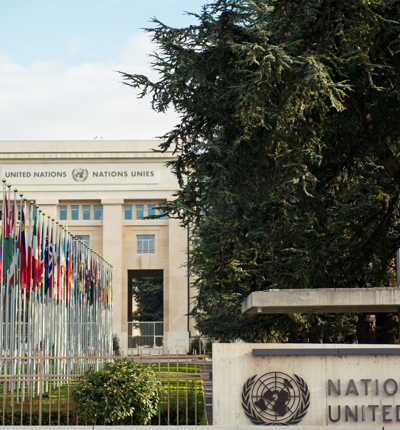
Our Rights, Our Future, Right Now
On Human Rights Day, solicitor Frances Swaine, who works in the immigration and asylum team, discusses the importance of human rights in a democratic society and its application for those seeking asylum in our country.
Posted on 10 December 2024
At the close of the period celebrating the 75th year of the Universal Declaration of Human Rights, the United Nations High Commissioner for Human Rights, Volker Türk, presents a vision statement, Human Rights: A Path for Solutions.
His is a vision which sets out the dangers of a world where human rights have become a past tense, and the need to ensure those who seek to rubbish them are put firmly back in their box.
The treatment of asylum seekers and migrants to the United Kingdom reached a new low this summer with the race riots which defined an anti-migrant feeling prevalent in some of the UK, but over the past few years we have seen an increasing erosion in both government and public respect for those arriving legally by land, sea or air.
Asylum seekers coming to the United Kingdom are legal migrants until a court deems them otherwise. If they become refugees, they start their long and expensive passage towards Indefinite Leave to Remain. No one hands them citizenship on a plate. For those few who are found ineligible for asylum, they are returned to their home country.
Political comment and rhetoric, whether suggesting numbers of asylum seekers who simply do not exist, or denigrating those who lawfully remain, has not helped to educate us on the human rights of those who come to join us. In fact, as Volker Türk sets out, there are increasingly those with a voice, and with power, who seek to convince us that human rights are something for the "woke brigade", something to undermine the rule of law, and not to protect and nurture everyone. Human rights are a fundamental part of running a democratic state, where protecting us all - whoever we are - means that everyone else can feel protected.
What they are not, of course, is a political passport to all the things any family might aspire to: the best schools, the nicest housing, the highest pay. To help us achieve these things we have a democracy, and we vote for the politicians we think can improve the services across the board. For that we need to understand how civic society works and where our voices exist and what changes we can bring as citizens using our vote.
But for the underpinning of our civic society there are basic human rights which we all want to see upheld in the streets around us, within the people we meet every day. Such rights as rights to education, rights to choose whether we worship or not, to equal treatment regardless of gender, sexual, ethnicity or - in the case of those fleeing wars and persecution in their home countries - basic access to what enables them to live in the United Kingdom whilst their histories are assessed in our legal system, and a legal decision made about whether they can stay.
And, if those seeking asylum are found legally eligible to stay, they are part of our society and should be afforded the same respect and treatment that the rest of us enjoy in a democratic state where, as Volker Türk sets out, to take a different path and to rail against the rights of newcomers is to take a path bereft of basic human rights - which only those wishing to manipulate societies away from democracy could wish to see.



